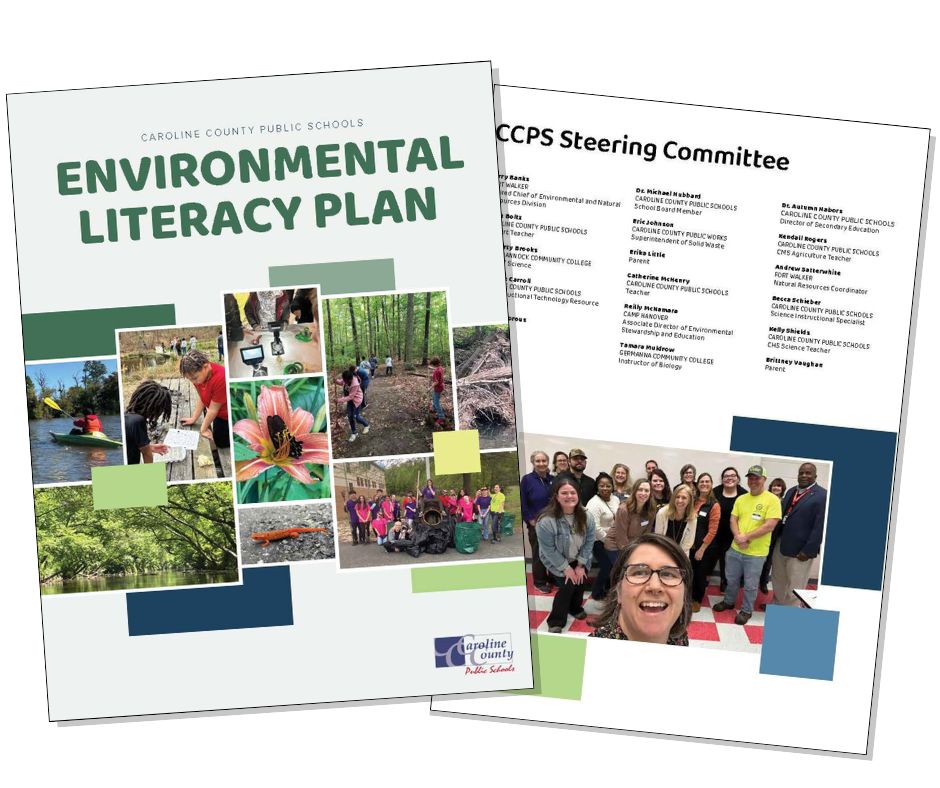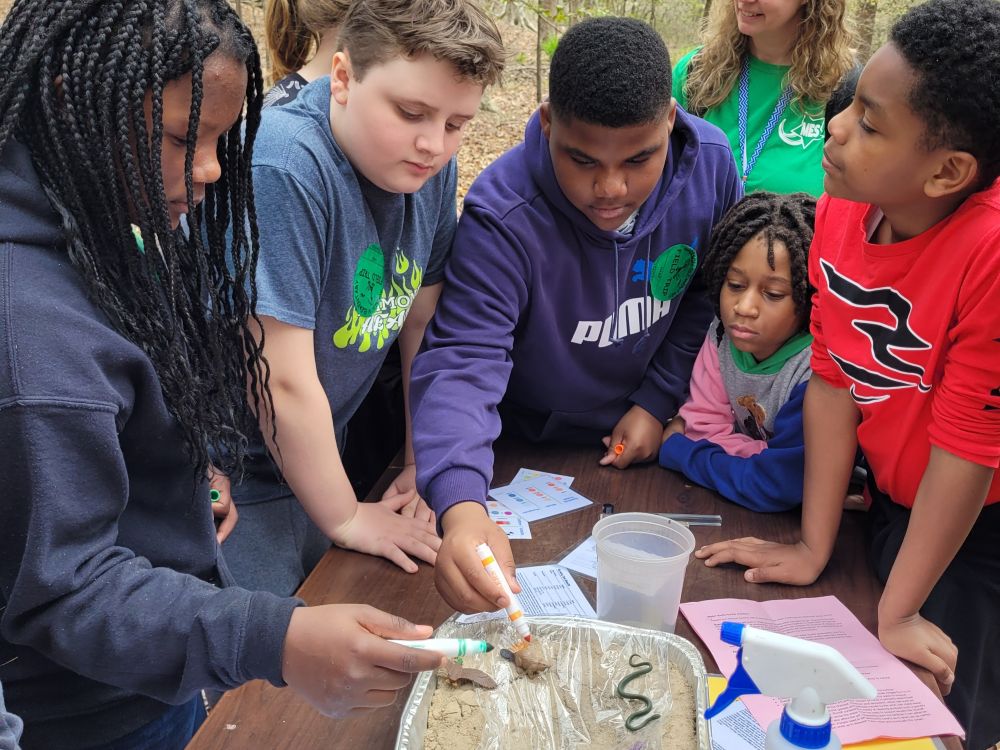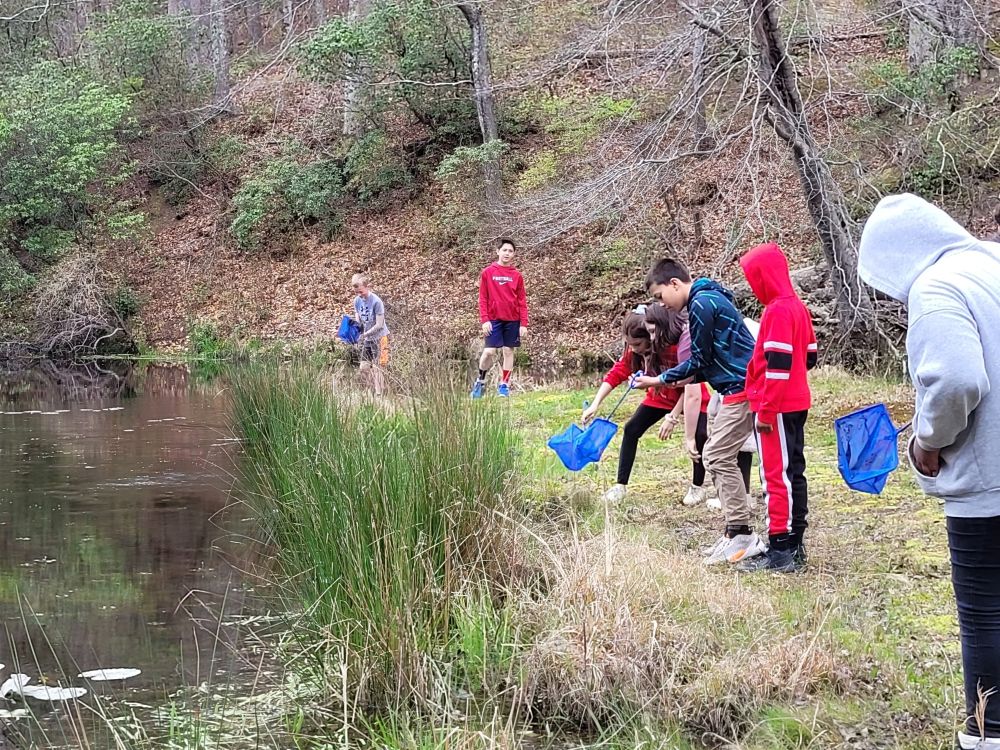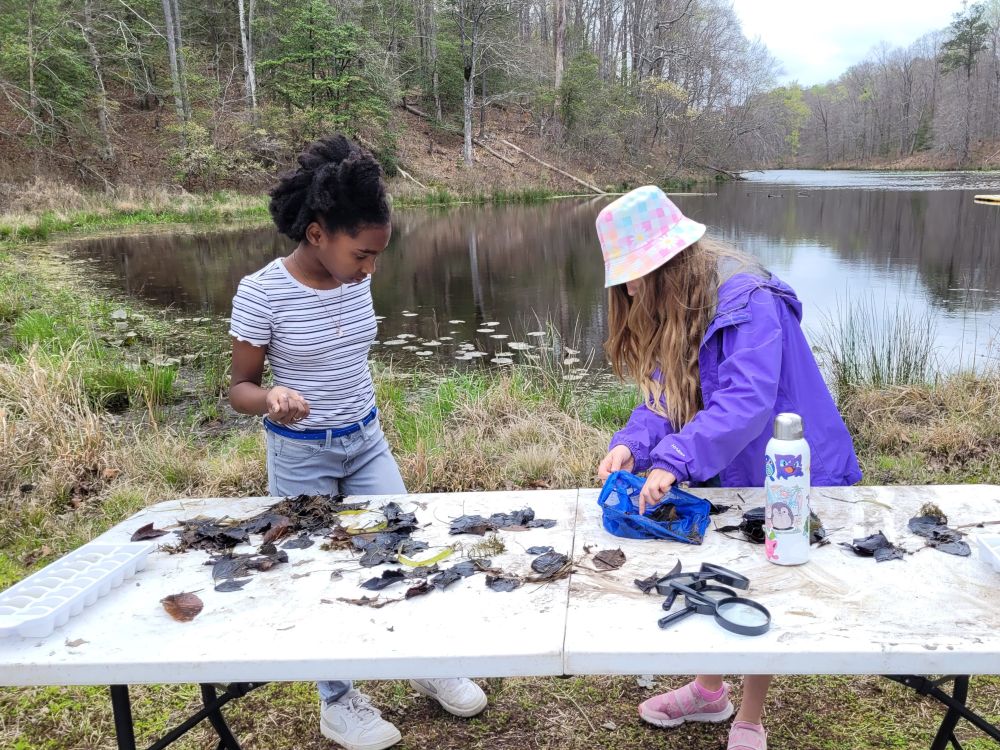Environmental stewardship is a core value of Camp Hanover’s mission. Last year, a member of our team partnered with a local school division to improve environmental education for their students.
The inaugural CCPS Environmental Literacy Plan (ELP) is Caroline County Public Schools’ (CCPS) guide for making students better stewards of the environment.
The plan offers students opportunities to “discover their local watershed, understand their place in it, [and] grow into active environmental stewards.” A watershed is the land that water flows across on its way to a body of water, such as a stream, lake, or wetland.


Reilly McNamara
Reilly McNamara, Camp Hanover’s associate director for environmental stewardship and education, was on the plan’s steering committee.
“Serving on the CCPS environmental literacy team was a unique opportunity to contribute to shaping the future of education and sustainability for all the students who will learn from it in the county,” Reilly shared about her work on the steering committee.
“It was an honor to collaborate with educators, partners, families, school administration, and environmental professionals who share the vision of empowering individuals to not only understand the pressing environmental challenges but also actively engage in solutions.”
Camp Hanover is included in the guide as a site where students can experience a watershed and perform activities like water quality testing and watershed mapping.

CCPS’ plan is one of many being adopted across the Commonwealth of Virginia because of goals established in the multi-state Chesapeake Bay Watershed Agreement. Virginia’s Standards of Learning in Science also require that students learn about watersheds.
The project was funded by NOAA’s Chesapeake Bay Watershed Education and Training Program under a federal grant awarded to the Hanover-Caroline Soil and Water Conservation District.
Students from CCPS’ Madison Elementary and Bowling Green Elementary are just some of the school children who have learned about the environment through field trips at Camp Hanover. One of the activities during their visit involves examining water from Camp Hanover’s lake. After collecting small samples of water, students carefully study it for certain water insects. When they find the right critters, they know the water is healthy.


